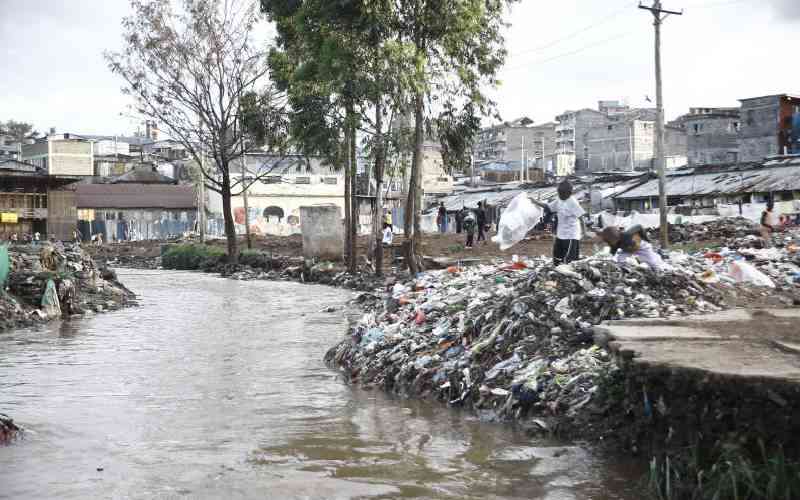
Every week seems to bring a new report about where “forever chemicals” have been found: in soil, drinking water, our bodies and marine animals.
Their proper scientific name is perfluoroalkyl and polyfluoroalkyl substances (PFAS). But they’re more commonly called “forever chemicals” because, once they’re in an environment, they rarely break down.
These chemicals are harmful in many ways: they kill fish, disrupt plant growth and can make humans very ill.
In a new study, water and chemical researchers Patrick Ssebugere, Ashirafu Miiro and Oghenekaro Nelson Odume have identified Africa’s forever chemical hotspots.
The research notes that, while under-reported compared to industrialised countries, contamination by forever chemicals is a widespread, pressing environmental issue on the continent.
READ: 14 counties blamed for abetting Lake Victoria pollution
The study identified contamination in 11 countries: South Africa, Kenya, Nigeria, Uganda, Ghana, Ethiopia, Mozambique, Tanzania, Zambia, Mali and Tunisia. South Africa recorded some of the highest levels. These countries are based on the scientific papers examined. It is highly likely that these chemicals are in other countries but remain unreported.
Outdated technology
The European Union has a list of proposed PFAS thresholds for sensitive environments like rivers, lakes and wetlands. Some regions within the countries in our study exceed those thresholds.
Industrial effluent outfalls and commercial agriculture are two of the main drivers of PFAS contamination. Wastewater treatment plants are another major culprit. Many plants across the countries in our study use outdated technology and are not sufficiently regulated. This allows PFAS-laden effluent to flow into aquatic ecosystems.
One of the hotspots we identified was South Africa’s Vaal River, where industrial effluents were contributing to contamination. Another was Kenya’s rivers in Nairobi; urbanisation and industrial runoff are driving high PFAS levels in this important body of water.
Perhaps the most worrying example is Lake Victoria. It is Africa’s largest lake and feeds the Nile River, which spans 11 countries and supports more than 300 million people.
ALSO READ: Nairobi regeneration committee promises to restore city’s lost glory
The danger with PFAS is that they accumulate in organisms over time, moving up the food chain. For humans, this means exposure through fish or water sources, increasing risks of kidney disease, reproductive disorders, miscarriages and developmental issues in children.
Ecosystems are also impacted by these chemicals, which affect aquatic biodiversity and food webs.
The study has recommended several ways to address PFAS contamination.
Weak enforcement
One of them is strengthening regulations by aligning with international frameworks like the Stockholm Convention, a global treaty to eliminate persistent organic pollutants. All 11 of the countries in our study are signatories to the convention.
But, given the problems we identified, it’s clear that enforcement is weak. Stricter regulations are also crucial if producers are to be held accountable for using PFAS and pushed to use safer alternatives.
 The Standard Group Plc is a multi-media organization with investments in media
platforms spanning newspaper print
operations, television, radio broadcasting, digital and online services. The
Standard Group is recognized as a
leading multi-media house in Kenya with a key influence in matters of national and
international interest.
The Standard Group Plc is a multi-media organization with investments in media
platforms spanning newspaper print
operations, television, radio broadcasting, digital and online services. The
Standard Group is recognized as a
leading multi-media house in Kenya with a key influence in matters of national and
international interest.



